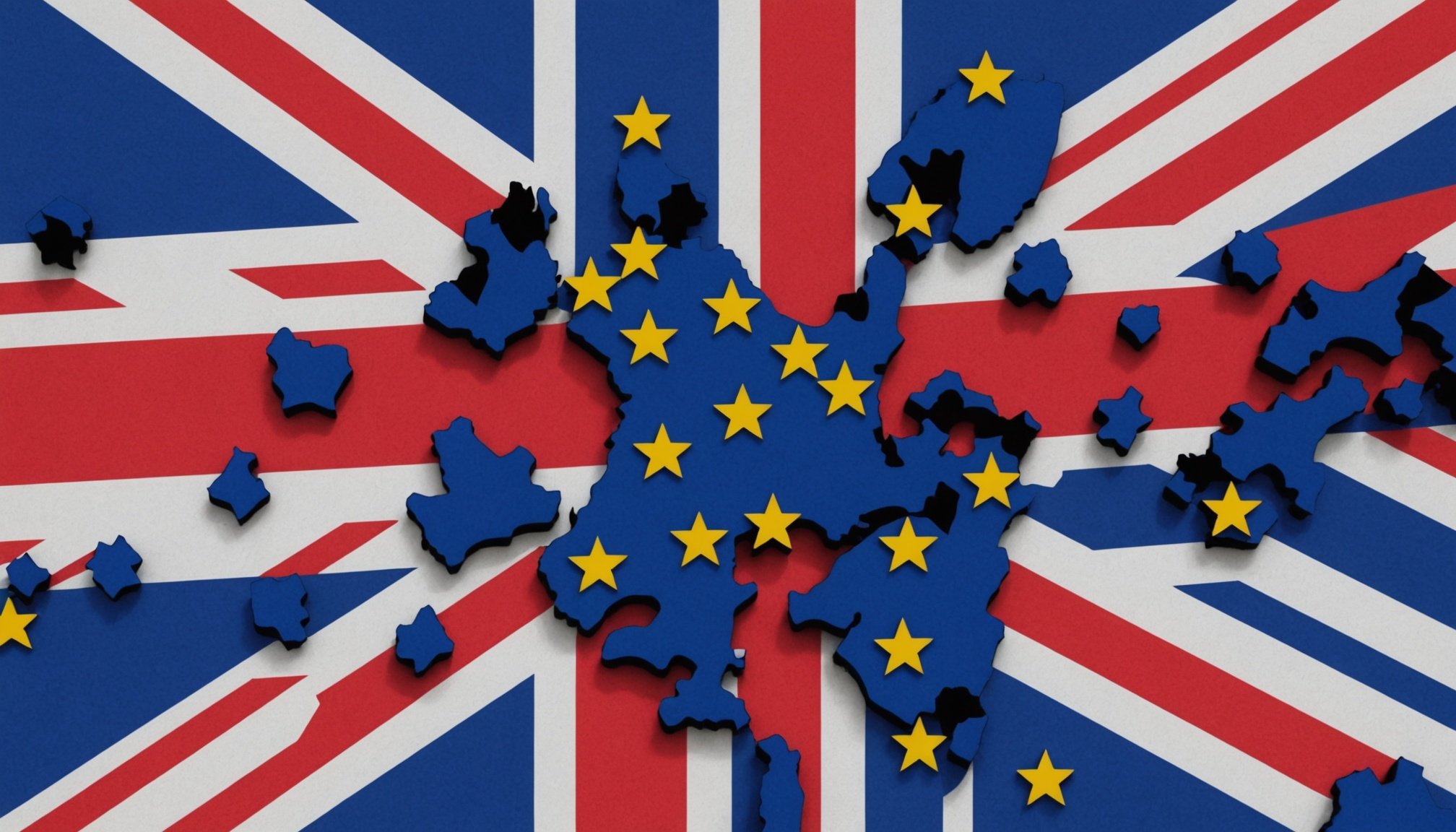Ongoing Debate Surrounding Brexit’s Economic Impact
The Brexit economic debate remains highly polarized, with no clear consensus from UK economy expert opinions. Economists and policymakers disagree on whether Brexit has led to long-term harm or potential benefits, making the topic complex. Key points of disagreement revolve around trade flows, investment levels, and productivity changes since the UK’s exit from the EU.
One major area of contention is the magnitude of trade disruption caused by Brexit. Some experts highlight increased border frictions and regulatory divergence as detrimental, while others argue new trade deals could offset such challenges. Investment trends also split opinion—some point to a decline in foreign direct investment, while others see adaptation and new domestic opportunities.
Also to discover : What Are the Long-Term Implications of Recent Political Developments in the UK?
Understanding these varied perspectives is crucial. The Brexit impact disagreement stems from differing evaluation methods and time frames considered. Economic models may focus on short-term shocks or prospective long-term structural changes, influencing conclusions. Policy decisions hinge on interpreting these complexities, emphasizing why the ongoing debate is vital. To grasp the full picture, exploring multiple viewpoints and recognizing the nuanced nature of Brexit’s economic consequences is essential.
Evidence for Negative Economic Effects of Brexit
Experts pointing to a negative Brexit economic impact often highlight measurable declines in key economic indicators since the UK’s EU departure. For instance, UK economic performance post-Brexit has shown slower growth rates compared to pre-Brexit trends and other major economies. Trade statistics reveal reduced exports to the EU, partly due to increased customs checks and regulatory barriers, which have disrupted supply chains. Foreign direct investment (FDI) also declined, reflecting concerns among international investors about market access and political uncertainty.
Topic to read : How are UK cities adapting to smart city initiatives?
Leading institutions, including some respected economic think tanks and independent analysts, underscore these trends. They argue that Brexit-related changes have introduced persistent headwinds affecting productivity and business confidence. Certain sectors, such as manufacturing and financial services, exhibit clearer signs of strain. Manufacturing has faced higher costs and delays, while some financial services have lost EU passporting rights, limiting cross-border operations.
This evidence aligns with expert negative opinions that Brexit has adversely shaped economic trajectories. However, these conclusions rely on interpreting complex data amid broader global challenges, making precise attribution difficult but the overall trend toward negative consequences well documented.
Arguments Highlighting Positive or Mitigating Impacts
Experts advocating positive Brexit outcomes emphasize the UK’s regained ability to tailor policies specifically to its economy. This policy flexibility is seen as a key driver for potential long-term gains, allowing the UK to adjust trade agreements and regulatory standards without EU constraints. For example, sectors like technology and pharmaceuticals have reported continued growth and investment, suggesting pockets of economic resilience post-Brexit.
Additionally, some argue that Brexit has spurred innovation and competitiveness by encouraging domestic industries to adapt and seek new markets globally. The UK’s ability to strike trade deals independently is cited as a practical advantage, potentially offsetting earlier disruptions.
Organizations supporting these views highlight certain improvements in economic indicators such as rising export volumes to non-EU countries and stable employment figures in emerging sectors. Their expert opinions underline that while challenges exist, the UK shows signs of economic adaptability and opportunity.
Overall, these arguments contribute to the nuanced Brexit debate by focusing on mitigating factors and potential benefits, encouraging consideration of both setbacks and growth possibilities when evaluating Brexit’s economic trajectory.
Why the Impact of Brexit on the UK Economy Remains Debatable
The Brexit impact consensus remains elusive because experts weigh continued Brexit debate factors differently, leading to unresolved conclusions. One core reason is the complexity of isolating Brexit’s effects from other global influences like the COVID-19 pandemic, supply chain shocks, and geopolitical tensions. These overlapping events blur cause-and-effect links in UK economic performance, fueling unresolved UK economic effects assessments.
Moreover, the UK’s economic landscape is evolving. Long-term structural changes caused by Brexit, such as regulatory divergence and trade realignment, take years to fully manifest, which delays definitive conclusions. Consequently, many expert opinions stress persistent uncertainties around measuring these impacts precisely.
Methodological differences also drive the debate. Some analyses use short-term trade and investment data, while others focus on prospective structural shifts, resulting in diverging perspectives. The mismatch in data quality and availability makes forecasting challenging, further amplifying disagreements.
In addition, political and social factors shape interpretations, as policymakers may emphasize either costs or benefits based on ideological standpoints. Thus, the continued Brexit debate underscores the necessity for ongoing research and updated economic data to clarify how Brexit truly influences the UK economy over time.
Key Findings from Recent Studies and Reports
Recent Brexit economic research presents a complex and often contradictory picture. Major reports from government bodies, think tanks, and academic institutions provide a range of conclusions, reflecting underlying Brexit impact disagreement. Some studies highlight lasting trade losses and investment declines, reinforcing concerns about the UK’s economic position post-Brexit. Others emphasize areas of resilience and potential growth opportunities.
Economic indicators show mixed signals. For instance, export figures to the EU have generally decreased, but exports to non-EU countries have modestly increased, reflecting a shift in trade patterns. Productivity growth remains subdued, though some sectors register gains. These contrasting data points fuel ongoing debate among UK economy expert opinions.
Methodological differences contribute significantly to divergent findings. Short-term analyses often capture immediate disruptions, while long-term models attempt to project structural shifts, sometimes yielding opposite perspectives. Additionally, assumptions about global economic conditions, such as pandemic recovery and supply chain reconfiguration, heavily influence results.
Understanding these recent analyses of Brexit is crucial for grasping why the Brexit economic debate endures. The breadth of studies underscores the importance of cautious interpretation and recognizing the evolving nature of Brexit’s economic consequences.
Factors Contributing to the Ongoing Debate
The reasons Brexit impact is debated stem largely from the complex interplay of multiple factors complicating clear analysis. Global economic volatility, including events like the COVID-19 pandemic and supply chain disruptions, obscures direct links between Brexit and economic shifts. This volatility challenges economists to isolate Brexit’s specific effects from broader trends.
Additionally, challenges in assessing Brexit economy arise from limitations in available data. Trade and investment figures often lag and vary in quality, hindering precise measurement. Forecasting models differ significantly in assumptions and scope, leading to contrasting outcomes. For example, some models emphasize short-term disruptions, while others project long-term structural changes, contributing to Brexit data interpretation variance.
Political and social contexts further shape narratives. Stakeholders with differing priorities may highlight either setbacks or opportunities, influencing public and expert discourse. Timing also matters: many Brexit consequences unfold gradually, making immediate assessments provisional.
Understanding these nuanced factors clarifies why the Brexit economic debate persists. Recognizing how external economic conditions, data challenges, and interpretative differences intersect is key to appreciating the ongoing Brexit impact disagreement among experts.






